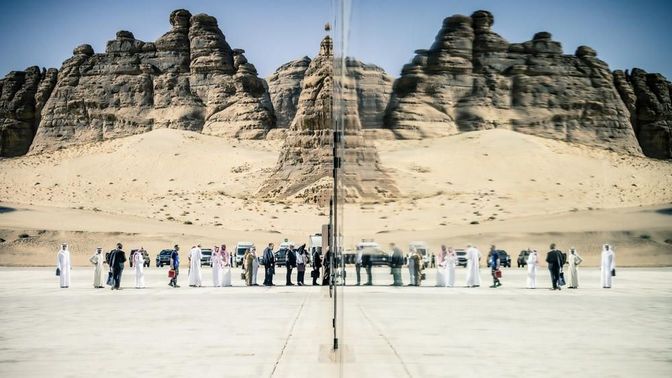

"Long Live Multilateralism!" – Munich Young Leaders 10th Anniversary Meeting
From September 19 to 21, alumni of the Munich Young Leaders program gathered in New York City for its 10th anniversary. In high-level meetings just ahead of the UN General Assembly, the alumni discussed challenges to multilateral cooperation, highlighted by the launch of a new report on the future of multilateralism.
From September 19 to 21, the MSC and Körber-Stiftung hosted the Annual Meeting of the Munich Young Leaders (MYL), a network that assembles next-generation experts and decision-makers in foreign and security policy. The reunion in New York City marked the 10th anniversary of the MYL program. When the MSC and Körber-Stiftung established the MYL initiative in 2009, they envisioned a platform for young experts to engage in open dialogue with high-ranking political figures, to strengthen their network, and to exchange fresh ideas in the field of foreign and security policy. Ten years later, this platform has taken on impressive dimensions: Today, it comprises more than 250 alumni from over 60 countries, among them ministers, members of parliament, commanding officers and leading political experts and thinkers from some of the world's most distinguished institutions.
A record number of MYL gather in NYC
This year's meeting brought together more than 90 MYL alumni. During the three-day program participants debated with a wide range of senior experts and decision-makers, among them the head of the UN Counter-Terrorism Executive Directorate, Michèle Coninsx, the President of the 73rd Session of the UN General Assembly, María Fernanda Espinosa-Garcés, and the Permanent Representative of Germany to the United Nations, Christoph Heusgen.
Among the topics discussed during the meetings were the impact of the intensifying US-China power struggle on multilateral cooperation, best practices of security collaboration in Asia, the role of the United Nations in a shifting world order, and the extent to which initiatives by cities and non-state actors can compensate for states’ growing reluctance to engage in multilateral problem-solving.
Searching for beacons of hope
A recurring theme throughout the discussions was the United States' retreat from global leadership and its impact on multilateral cooperation. In many parts of the world, participants highlighted, the US' growing reluctance to engage with its allies has a negative impact on regional stability. In a session on security cooperation in Asia, former Australian Prime Minister Kevin Rudd shared his views on a new era where Asian states, worried about the rise of China and a possible US retreat, seek to find their position between the two great powers.
Another session on the Middle East revealed a similar picture: It addressed the manifold challenges for regional stability posed by Washington pursuing a "maximum pressure" strategy on Iran while simultaneously disengaging from the broader region. The growing US-China rivalry was also eagerly discussed throughout the program. In a fireside chat with the MYL alumni, former US Secretary of State Henry Kissinger shared his views on the risks of great-power war and the role of Europe in shaping the future global order.
States are no longer the only actors on the global scene that engage in cooperative problem-solving.
But the debates also showed that there are "beacons of hope" of multilateral cooperation. Most importantly, states are no longer the only actors on the global scene that engage in cooperative problem-solving. As Anne-Marie Slaughter, the President and Chief Executive Officer of New America, highlighted in a dinner speech during the reunion, "The liberal international order is not a world order of states but of people." In fact, below the level of the nation state, cities and non-state actors are eagerly cooperating to successfully tackle growing transnational threats, such as climate change.
Report launch: "Multilateralism is Dead. Long Live Multilateralism!"
These positive developments of multilateral cooperation are also the focus of a publication launched by the MSC and Körber-Stiftung at the meeting in New York City. Titled "Multilateralism is Dead. Long Live Multilateralism!" and authored by Munich Young Leaders, it presents best practices for multilateral cooperation, and offers regional perspectives on the prospects of and challenges to the multilateral order. The report was presented at the UN Headquarters on September 19 with a keynote remark by the UN Under-Secretary-General for Political Affairs, Rosemary DiCarlo. Emphasizing that the United Nations continues to mark successes, DiCarlo recognized that the organization could certainly do more to publicize them and acknowledged the important contribution of the MYL publication in this context.

